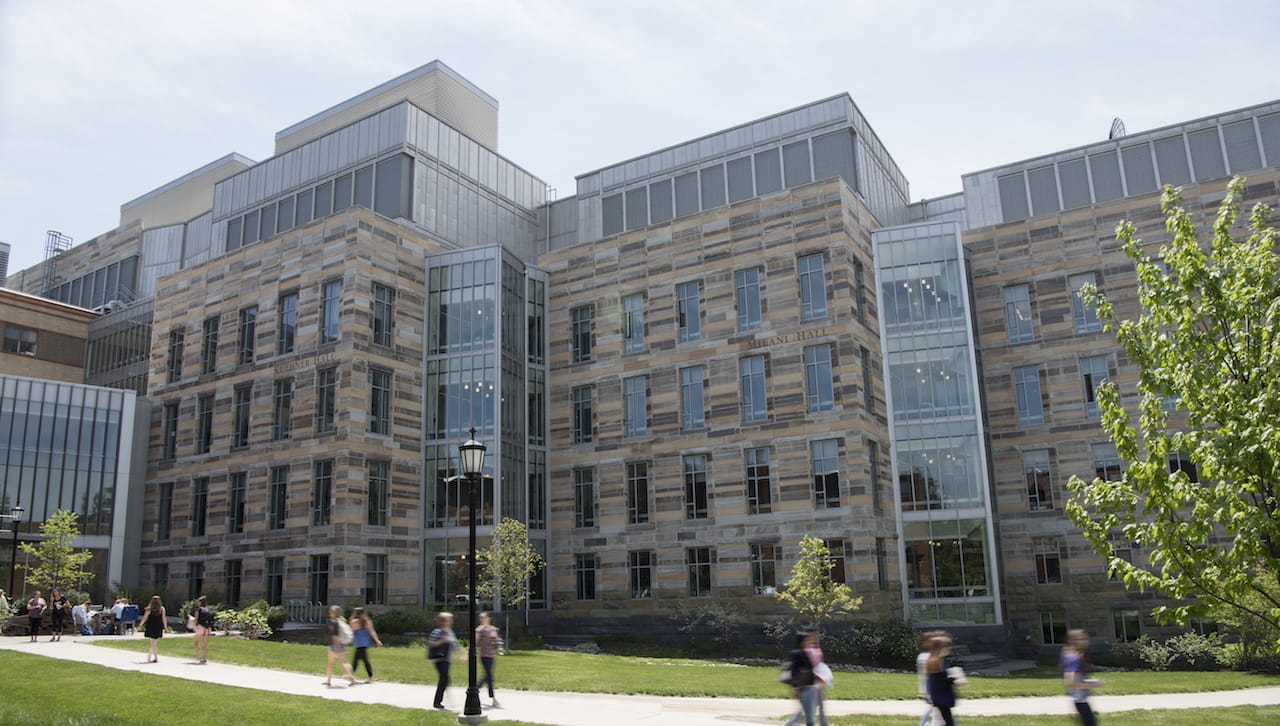HamSCI Workshop Coming to Scranton in March

The third annual HamSCI Workshop 2020 for amateur radio operators and professional scientists will be held Friday and Saturday, March 20-21, at The University of Scranton. The theme of the workshop is “The Auroral Connection,” and will include addresses by guest speakers, poster presentations and demonstrations of relevant instrumentation and software.
The workshop will also serve as a team meeting for the HamSCI Personal Space Weather Station project, which is a National Science Foundation (NSF) funded project awarded to University of Scranton physics and electrical engineering professor Nathaniel Frissell, Ph.D. The project seeks to harness the power of a network of licensed amateur radio operators to better understand and measure the effects of weather in the upper levels of Earth’s atmosphere.
Through the grant, Dr. Frissell, a space physicist, will lead a collaborative team that will develop modular, multi-instrument, ground-based space science observation equipment and data collection and analysis software. He will also recruit multiple universities and ham radio users to operate the network of “Personal Space Weather Stations” developed. In addition to Scranton, the Personal Space Weather Station project includes participation from TAPR (Tucson Amateur Packet Radio) amateur radio engineering organization, Case Western Reserve University amateur radio club W8EDU, the University of Alabama, the New Jersey Institute of Technology Center for Solar-Terrestrial Research, MIT Haystack Observatory, Dartmouth College and the ham radio community at large.
The keynote address for the HamSCI Workshop 2020 will be given by Tim Duffy, K3LR, chief operating officer and general manager at DX Engineering, an active amateur radio operator and well-known contester. He serves as chairman of Contest University, the Dayton Contest Dinner and the Top Band Dinner, as well as coordinator of the Contest Super Suite. He is the founder and moderator of the popular RFI Reflector. Duffy serves on the board of directors of the World Wide Radio Operators Foundation and as chairman and president emeritus of the Radio Club of America. He was elected to the CQ Contest Hall of Fame in 2006 and was honored with the prestigious Barry Goldwater Amateur Radio service award by the Radio Club of America in 2010.
Speakers at the workshop include Elizabeth MacDonald, Ph.D., the NASA researcher that founded and leads the Aurorasaurus project. Dr. MacDonald will discuss fundamentals of auroral physics, its optical signatures, and the Aurorasaurus citizen science project. James LaBelle, Ph.D., professor of physics and astronomy at Dartmouth University and auroral radio physicist, will discuss radio signatures of the aurora, remote sensing using active and passive techniques, and ways the amateur radio/HamSCI community could contribute. Also, David Hallidy, amateur radio call sign K2DH, a retired microwave engineer who is also a well-known amateur radio operator for his work in auroral mode propagation, will discuss his practical experiences of using the aurora for radio communication purposes.
Additional information, attendance fees and registration can be found on the HamSCI Workshop 2020 website.






